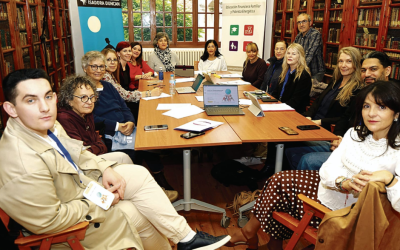CSMC’s report, ‘To Be Seen an Heard’ is based on surveys and focus groups conducted with young people growing up in single mother families across Victoria. They talked with us about many issues impacting their lives, including housing, employment, stigma, and relationships. One recurring concern across all the discussions was health.
Twenty-seven percent of participants in our research said they live with a disability or long-term health condition that significantly impacts or restricts their daily lives, with 20 percent disclosing a neurodivergence or mental health issues.
Yet, when the participants spoke of health barriers, they were referring not only to their own health, but their siblings’ and mothers’ health as well – and how that fed into the family’s financial pressures and demands on their mothers’ time.
The challenges of mental health care
According to the young people who participated in the study, the costs of managing mental health issues experienced by themselves and their family members start from the initial visit to the GP, with the kids telling us that the process of going to a doctor to get a referral to a child psychologist, for example, often comes with upfront out-of-pocket fees. A mental health appointment books out 30 minutes rather than the usual 15 minutes, which of course, increases the fee.
It’s also time consuming. Once the referral is gained, it is commonplace for the GP to either give the young person a list of local child psychologists and a referral letter for a subsidised mental health plan (usually between six and ten sessions across a 12 month period), leaving it up to the young person or their mother to call around to add their name to waiting lists, book appointments and fill in pre-admission forms.
The financial costs continue to stack up, with one-hour appointments costing over $200, and despite the mental health plan returning a subsidy of around $85, the initial fee needs to be paid in full and upfront.
On top of this, many require paediatricians to prescribe and monitor medication, with costs around $200 per appointment (more for the initial consult), the Medicare rebate still leaves the family more than $100 out of pocket.
In low-income households, some of our participants went without seeking mental health, neurodivergence or other medical supports because they didn’t want to put a further financial burden on their mother.
With government income support so low, many can only afford to go once a month or less, which is often insufficient time for development of rapport, management tools, and unpacking the reasons the young person is seeking mental health support.
What the young people recommended
The kids who participated in our study had clear ideas about how the health system could be improved to facilitate better and more meaningful access to healthcare, and to make it more affordable for single mother families, including:
- A version of health care or pension card for children of low-income single mother families, in particular those over 16 who attend appointments without their parent.
- Have ‘child of a single mother’ (or ‘single mother household’) as an optional tick box in forms where applicants are asked about poverty or disadvantage.
- Improved affordability for mental health plans, neurodivergence diagnosis, and prescribed medication.
Read more about what the young people told us, listen to their stories, and check out their recommendations across many issues here. You can download a copy of the report and take your own deep-dive into the findings.






0 Comments